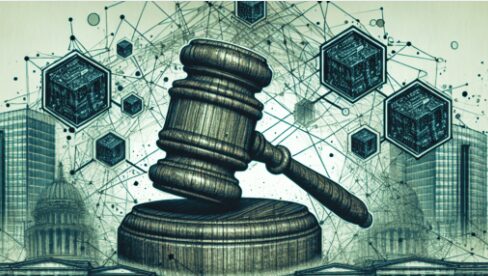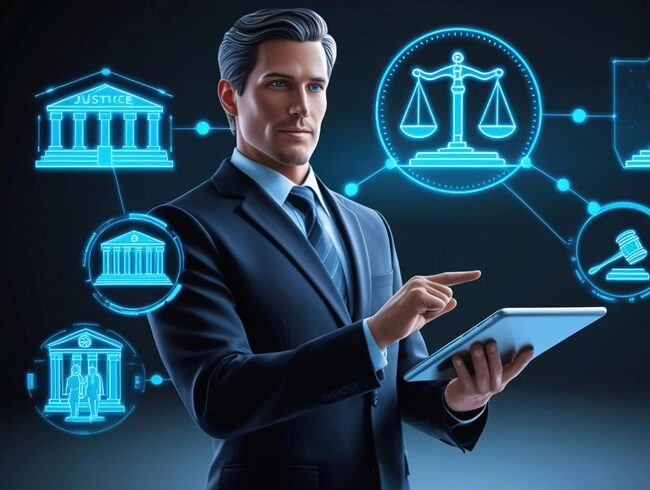In recent years, the legal sector has been witnessing a seismic shift, thanks to the integration of cutting-edge technologies like blockchain and video-based contract solutions. Traditional methods of contract management are now being re-evaluated, as businesses, law firms, and individuals seek more secure, transparent, and efficient ways to create, manage, and execute contracts. Among the emerging solutions are contracts on blockchain and video contracts, which hold promise for transforming the way legal agreements are made and upheld. Here, we explore how blockchain technology and video contracts are reshaping the legal sector and consider their potential for revolutionizing contract management.
1. The Rise of Blockchain in the Legal Sector
Blockchain technology has gained a significant foothold in various industries, from finance to healthcare, and now it is making its mark on the legal sector. With its decentralized, tamper-resistant structure, blockchain offers unparalleled security and transparency. In the context of legal contracts, this technology presents the ability to create immutable contracts, which means that once a contract is recorded on the blockchain, it cannot be altered or tampered with. This feature is critical for ensuring the authenticity of contracts, providing a high level of trust between the contracting parties.

Moreover, the immaturity of contracts stored on blockchain supports legal integrity and reduces disputes, as all contract changes are documented on the blockchain’s public ledger. This transparency can prove invaluable in cases where proof of original terms is required. Blockchain thus ensures that contracts remain authentic, reliable, and enforceable.
2. Smart Contracts: Automating Contract Execution
One of the most exciting applications of blockchain in the legal sector is the concept of smart contracts. These digital contracts are self-executing, meaning they automatically perform actions when pre-defined conditions are met. For instance, a smart contract could release payment to a contractor once specific project milestones are completed. This feature not only speeds up the contract execution process but also eliminates the need for intermediaries, which can help reduce costs and improve efficiency.
Contract execution on blockchain through smart contracts also brings substantial benefits in terms of security in legal contracts. Smart contracts are stored on the blockchain, making them tamper-resistant and ensuring that contract terms are adhered to without the risk of human interference. This process greatly enhances the security and reliability of legal agreements, which is essential for modern business transactions.
3. Video Contracts: Enhancing Transparency and Personalization
In addition to blockchain, video contracts are becoming a popular tool for creating modern legal solutions. Video contracts allow parties to record their agreements visually, capturing not only the terms but also the expressions, tone, and nuances of each party. This additional layer of personalization can be especially helpful in complex agreements, as video can convey the intent and emotions behind the contract terms in a way that traditional text documents cannot.
The rise of personalized video contracts in the legal field is a response to the demand for more transparent and human-centric agreements. Video contracts allow parties to document their understanding of the terms in a clear, unambiguous way, thereby reducing the potential for misunderstandings and disputes. This feature can be particularly valuable in cases where contracts are negotiated remotely, offering a visual record that complements the written agreement.
4. Digital Contract Platforms: A Unified Solution
With blockchain and video contracts, the legal sector is also seeing the emergence of digital contract platforms—integrated solutions that combine blockchain’s security with video’s transparency. These platforms offer a streamlined way to manage, store, and execute contracts digitally. Users can create contracts on blockchain and record accompanying video contracts, providing a single, unified platform that enhances both security and clarity.
Digital contract platforms further improve digital contract management by enabling users to track the progress and status of contracts in real-time. These platforms can alert parties to critical contract events, such as approaching deadlines or pending signatures, ensuring that contract processes run smoothly and efficiently. As the legal sector continues to modernize, digital contract platforms are expected to play a crucial role in supporting efficient and secure contract management.
5. The Benefits of Blockchain and Video in Legal Contracts
The integration of blockchain and video into contract management provides several compelling benefits:
- Enhanced Security: Blockchain technology ensures the security in legal contracts by making them tamper-proof and resistant to unauthorized modifications.
- Improved Transparency: Both blockchain and video contracts offer high levels of transparency in contracts. Blockchain provides a public ledger of all contract changes, while video adds a human touch, allowing for clearer communication.
- Cost Reduction: By automating contract execution through smart contracts, businesses can save on legal fees and administrative costs associated with traditional contract processes.
- Minimized Disputes: With the authenticity and immutability offered by blockchain, there is less room for disputes, as contract terms and records are secure and unchangeable.
- Increased Efficiency: Digital platforms that support blockchain and video contracts enable real-time monitoring, making it easier to track contract status and reduce the time spent on administrative tasks.

6. The Future of Contracts: Innovation and Integration
As blockchain in the legal sector becomes more widespread, its applications in contract management will likely continue to grow. The use of video contracts in particular is still a relatively new concept, but it has the potential to enhance transparency and foster stronger relationships between contracting parties. Together, these technologies provide a robust framework for building the next generation of contracts—those that are secure, transparent, and tailored to the needs of a digital age.
Looking ahead, the legal industry is expected to see a continued shift towards innovation in contracts, with more businesses and legal professionals adopting blockchain and video technologies. By embracing these advancements, the legal sector can offer modern legal solutions that meet the demands of today’s fast-paced, digital business environment.
Conclusion: A New Era for Legal Contracts
Blockchain and video contracts represent a paradigm shift in how contracts are managed and executed in the legal sector. By providing security in legal contracts and enabling transparency, these technologies empower businesses and individuals to engage in secure, efficient, and reliable agreements. As digital platforms that support blockchain and video contracts continue to evolve, they will pave the way for a new era of digital contract management.
Whether it’s the immutability of contracts, the enhanced personalization offered by video, or the efficiency gained from smart contracts, the benefits are clear. Blockchain and video contracts are not only transforming the way legal agreements are made but also setting the standard for the future of legal contracts. Embracing these innovations can lead to stronger, more trustworthy relationships and an overall more efficient legal sector, ultimately setting a new benchmark for modern legal solutions.



